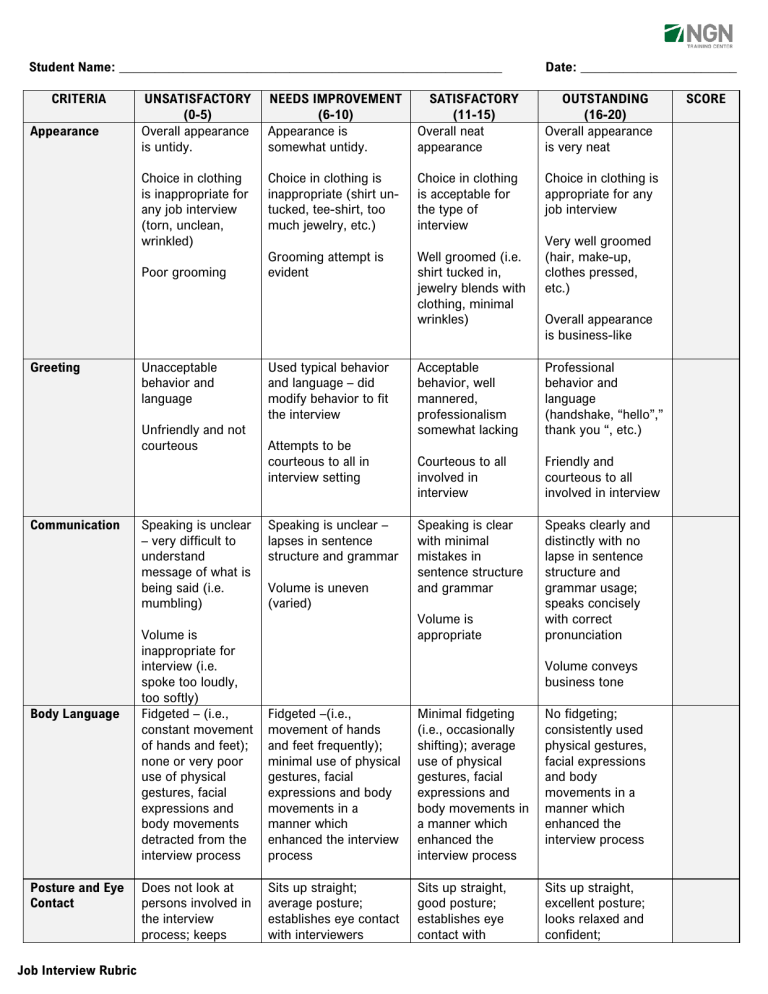How to Conduct a Job Interview for Small Business Owners
Hiring the right candidate is one of the most important decisions a small business manager can make. The interview process allows you to assess potential employees and ensure they align with your company’s culture, values, and operational needs. A well-prepared interview process increases the chances of hiring top talent while reducing costly turnover.
Defining Your Hiring Objectives
Before conducting interviews, clearly define what you’re looking for in a candidate. Use the job description to determine key skills, experience, and personal attributes. Evaluate resumes with a standardized checklist to maintain consistency and fairness. Set clear expectations by distinguishing must-have qualifications from nice-to-have attributes. Establishing objectives ensures a fair and effective hiring process where every candidate is assessed using the same criteria.
Selecting the Right Interview Method
The type of interview you conduct depends on your business needs and the role’s requirements. Structured interviews use a standardized set of questions for objective comparisons, while unstructured interviews allow for a more conversational approach but may lead to inconsistent evaluations.
Common interview types include phone screenings to assess basic qualifications before a full interview, one-on-one interviews for a deeper assessment, panel interviews that provide multiple perspectives, and virtual interviews that save time and resources. Choosing the right format streamlines the process and ensures meaningful insights from candidates.
Crafting Effective Interview Questions
Prepare a mix of question types to assess a candidate’s suitability. It’s essential to craft specific questions designed to evaluate whether an applicant possesses the critical success factors for the role.
Behavioral questions focus on past performance, such as “Tell me about a time you had to manage a difficult customer. How did you handle it?” Situational questions present hypothetical scenarios like “How would you handle a disagreement with a coworker?”
Open-ended questions provide insights into motivations and goals, such as “What are you looking to achieve in your next position?” A combination of these questions provides a comprehensive understanding of a candidate’s skills and cultural fit.
Conducting a Successful Interview
Start by introducing your company, its mission, and the role. Begin with general questions before progressing to more in-depth ones while maintaining a professional and engaging tone. Encourage candidates to use the STAR method for behavioral questions, structuring responses with Situation, Task, Action, and Result.
• Situation: Ask the candidate to describe the situation they were in.
• Task: What goal were they working towards?
• Action: What actions did they take?
• Result: What was the outcome and what did they learn
Avoid interrupting or leading candidates toward specific answers. Ask follow-up questions for clarity and observe non-verbal cues like posture, eye contact, and tone. Stay within legal guidelines by avoiding personal questions related to marital status, age, religion, or family planning. These are illegal and could come back to haunt you. Examples of inappropriate questions include:
• "Are you married?"
• "How old are you?"
• "Do you plan to start a family soon?"
• “Do you have any disabilities?”
Evaluating Candidates & Making a Decision
Use a scoring rubric to evaluate candidates based on key criteria such as skills, experience, problem-solving ability, cultural fit, and communication skills. Score responses in real-time and take notes to ensure fair comparisons. Minimize hiring bias by focusing on job-related criteria, involving multiple interviewers, and avoiding the halo effect, where one strong answer influences overall impressions.
After comparing scores and discussing feedback with your hiring team, notify both successful and unsuccessful candidates professionally. If multiple candidates qualify, consider a second round of interviews before making a final decision.

Final Thoughts
Conducting interviews effectively requires planning, structure, and a clear understanding of your hiring objectives. By preparing thoughtful questions, maintaining a professional yet engaging tone, and using objective evaluation methods, you can make confident hiring decisions that benefit your business in the long run. Following these best practices helps you find the right talent while creating a positive candidate experience, establishing your business as a desirable employer.
Social accounts
Get in touch
-
2180 Third Street, La Verne, CA, 91750
-
SBDC@laverne.edu
-
(909)448-1567

